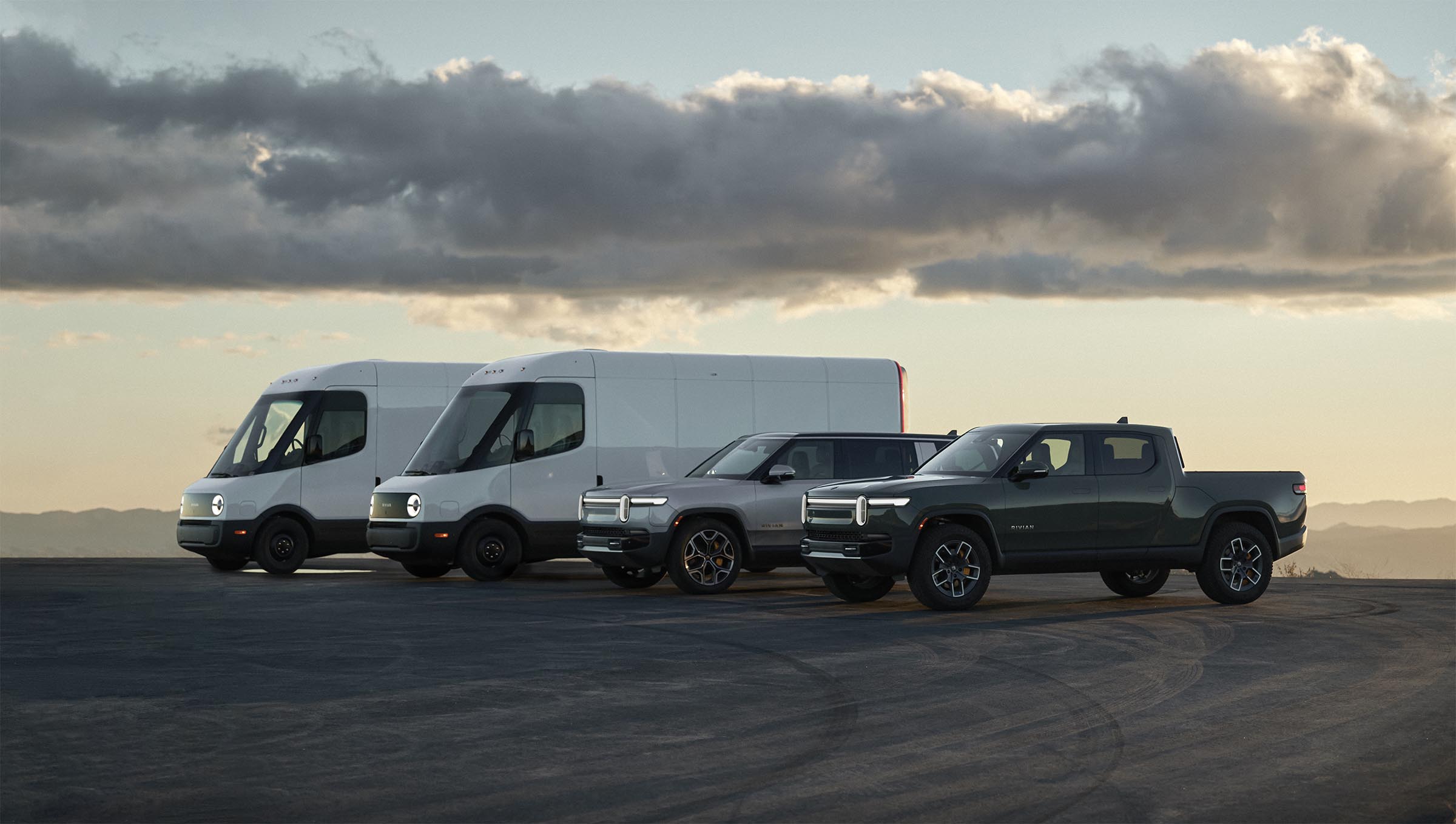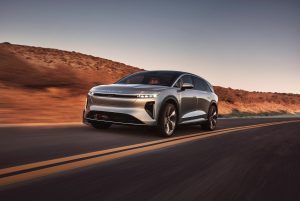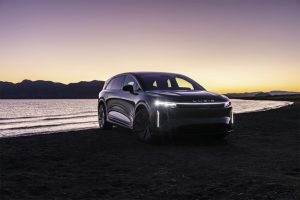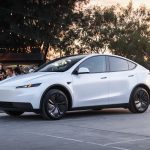Rivian and Lucid are both electric vehicle manufacturers; that’s where the comparisons end when looking at each company’s third-quarter earnings results. Rivian beat the street’s expectations as Lucid fell short.

Rivian revised its full-year delivery numbers guidance downward after the federal EV tax credit ended.
California-based Rivian beat analysts’ expectations for the period, in part, courtesy of the rush by consumers to take advantage of the $7,500 federal tax credit before it ended Sept. 30. The company reported it increased its deliveries by nearly a third, 32%, to 13,201 vehicle during the quarter.
However, the company revised its full-year delivery guidance downward because of the end of the tax credit. Officials expect to deliver between 41,500 to 43,500 new vehicles for all of 2025. However, the EV maker held the line on its EBITDA guidance of a loss between $2 billion and $2.3 billion.
Lucid’s tough turn
Lucid also cut its production prediction. After saying in August it would deliver between 18,000 and 20,000 vehicles for the year, interim CEO Marc Winterhoff told investors Wednesday that it would be “at the lower end of that range.”
Reuters reports that some experts don’t believe they’ll get that many out. According to LSEG data, they’re expecting 17,320 deliveries of the Lucid Air and Gravity for 2025.
Like Rivian, the automaker enjoyed a sales bump due to the end of the tax credit, but it’s not enough to offset other problems the company faced — and will continue facing — during the period. The result was a larger-than-expected earnings dip for Q3.
More EV News
- Disconnected: U.S. Auto Sales Tumble as EV Credits Disappear, Vehicle Prices Continue Surging
- Fed Rate Cut May Not Stave Off Auto Sales Slump
- Hertz Launches New Online Used Car Sales Channel
Knowing the numbers
For the quarter ended September, Lucid reported a 68% jump in revenue to $336.6 million, but well below analysts’ average expectations of $379.1 million, Reuters reported. The company posted an adjusted loss of $2.65 per share, compared with the estimate of a $2.27 loss.
The company’s faced a plethora of issues, including the Trump administration tariffs on parts, a shortage of semiconductor chips vital to EVs, and shortages of rare earth materials, as well as due to a fire at an aluminum supplier’s plant.
This has slowed the ramp-up of production of the company’s second vehicle, an SUV dubbed Gravity. However, the company has recently resolved many of its production problems, which bodes well for the Arizona-based EV maker.
Rivian’s revenue for the third quarter stood at $1.56 billion, compared with analysts’ average estimate of $1.5 billion. The company posted an adjusted net loss of 65 cents per share, smaller than the estimate of 72 cents per share.
Officials also noted they expect per-vehicle costs to drop by a few hundred dollars in the wake of the Trump administration’s 3.75% tariff offset for U.S.-made electric vehicles. They’re about $2,000 per vehicle right now, Rivian officials noted.









0 Comments